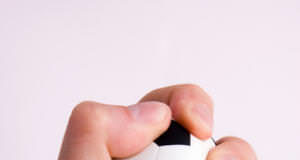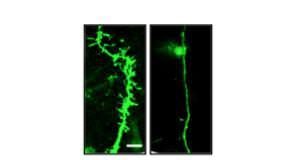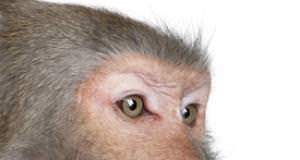Melatonin And Exercise Work Against Alzheimer’s In Mice
The combination of two neuroprotective therapies, voluntary physical exercise, and the daily intake of melatonin has been shown to have a synergistic effect against brain deterioration in rodents with three different mutations of Alzheimer's disease.
Tai Chi Increases Brain Size, Benefits Cognition In Randomized Controlled Trial...
Scientists from the University of South Florida and Fudan University in Shanghai found increases in brain volume and improvements on tests of memory and thinking in Chinese seniors who practiced Tai Chi three times a week, reports an article published June 19 in the Journal of Alzheimer's Disease.
Clenching Left Hand Could Help Athletes Avoid Choking Under Pressure
Some athletes may improve their performance under pressure simply by squeezing a ball or clenching their left hand before competition to activate certain parts of the brain, according to new research published by the American Psychological Association.
Mini-Strokes Leave ‘Hidden’ Brain Damage
Each year, approximately 150,000 Canadians have a transient ischemic attack (TIA), sometimes known as a mini-stroke. New research published January 28 in Stroke, the journal of the American Heart Association shows these attacks may not be transient at all. They in fact create lasting damage to the brain.
‘Mini’ Stroke Can Cause Major Disability, May Warrant Clot-Busters
A transient ischemic attack, TIA or a "mini stroke," can lead to serious disability, but is frequently deemed by doctors too mild to treat, according to a study in the American Heart Association journal Stroke.
Consuming Flavanol-Rich Cocoa May Enhance Brain Function
Eating cocoa flavanols daily may improve mild cognitive impairment, according to new research in the American Heart Association's journal Hypertension. Each year, more than six percent of people aged 70 years or older develop mild cognitive impairment, a condition involving memory loss that can progress to dementia and Alzheimer's disease.
How Stress And Depression Can Shrink The Brain
Major depression or chronic stress can cause the loss of brain volume, a condition that contributes to both emotional and cognitive impairment. Now a team of researchers led by Yale scientists has discovered one reason why this occurs -- a single genetic switch that triggers loss of brain connections in humans and depression in animal models.
Depressive Symptoms And Suicidal Thoughts Found In Former Finasteride Users
New research, to be published in the Journal of Clinical Psychiatry, finds that men who developed persistent sexual side effects while on finasteride (Propecia), a drug commonly used for male pattern hair loss, have a high prevalence of depressive symptoms and suicidal thoughts.
Increasing Dopamine In Brain’s Frontal Cortex Decreases Impulsive Tendency
Raising levels of the neurotransmitter dopamine in the frontal cortex of the brain significantly decreased impulsivity in healthy adults, in a study conducted by researchers at the Ernest Gallo Clinic and Research Center at the University of California, San Francisco.
Yoga Reduces Stress; Now It’s Known Why
Six months ago, researchers at UCLA published a study that showed using a specific type of yoga to engage in a brief, simple daily meditation reduced the stress levels of people who care for those stricken by Alzheimer's and dementia. Now they know why.
Controlling Monkey Brains And Behavior With Light
Researchers reporting online on July 26 in Current Biology, a Cell Press publication, have for the first time shown that they can control the behavior of monkeys by using pulses of blue light to very specifically activate particular brain cells. The findings represent a key advance for optogenetics, a state-of-the-art method for making causal connections between brain activity and behavior.
Hormone Curbs Depressive-Like Symptoms In Stressed Mice
A hormone with anti-diabetic properties also reduces depression-like symptoms in mice, researchers from the School of Medicine at the UT Health Science Center San Antonio reported July 9.















